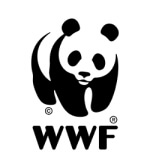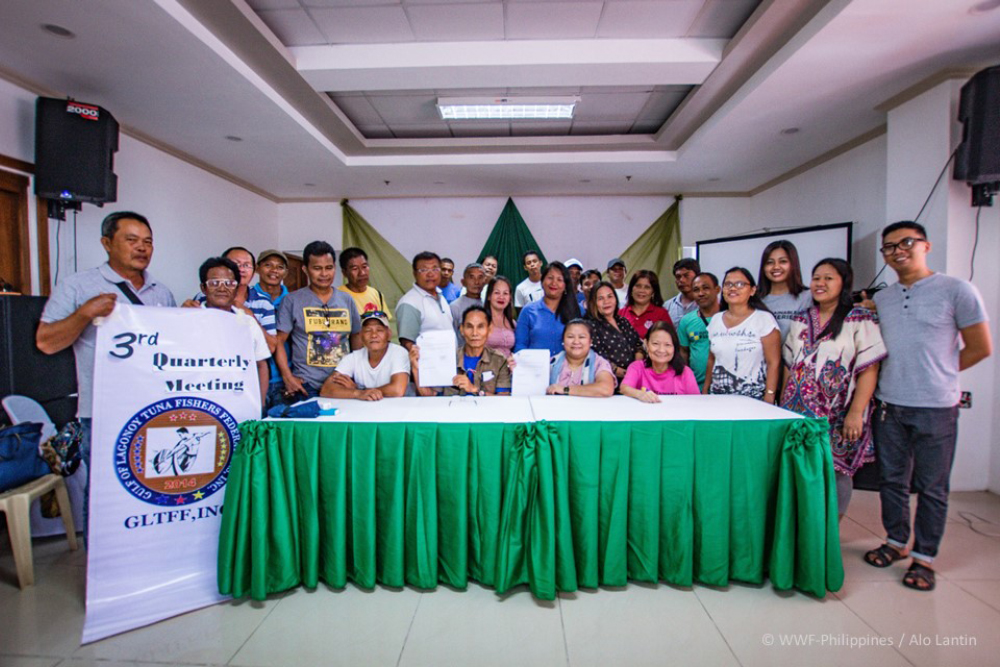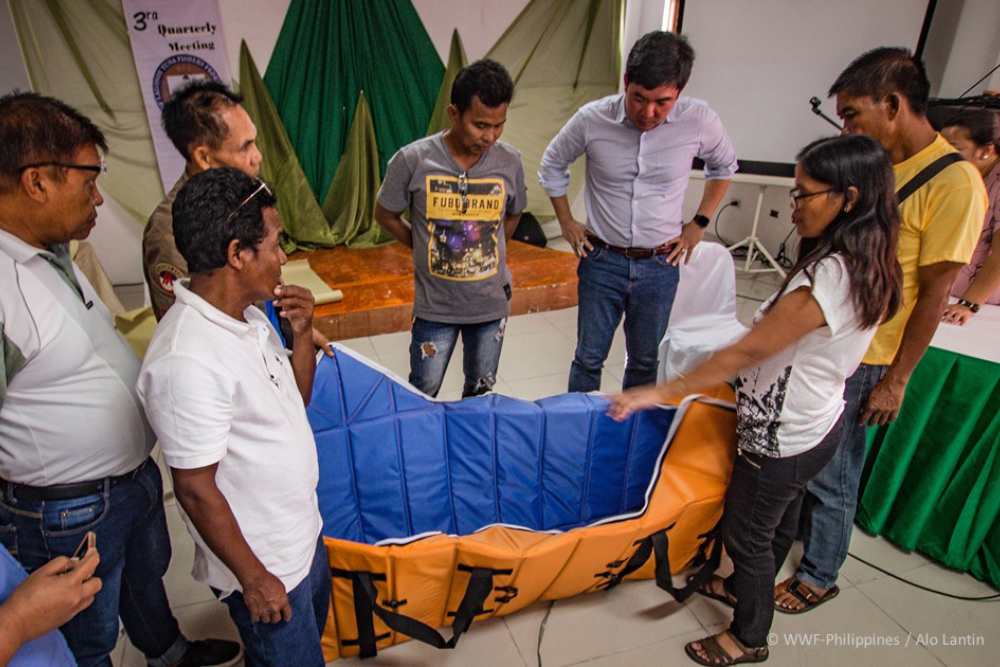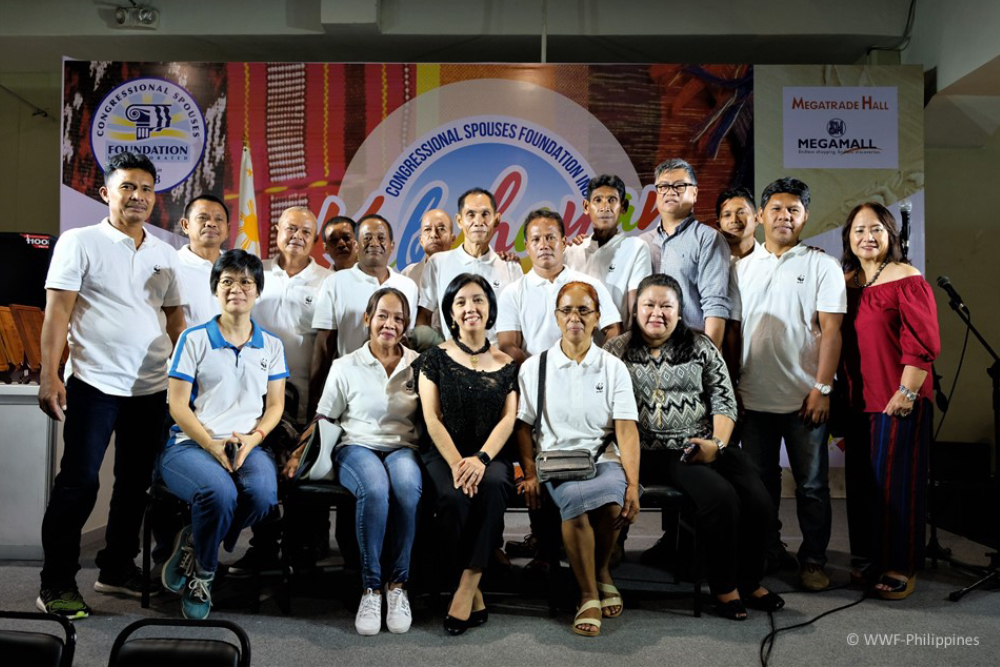On the 10th of July, 2019, at the Tabaco City Municipal Hall, a set of collapsible tuna catch holds was turned over to fishermen in Bicol in order to help raise the value of their catches at the marketplace. They were developed by Fortuna, an initiative from the Stanford University Institute of Design, and purchased with the support of the Congressional Spouses Foundation, Inc. (CSFI).
A catch hold is a device used to store fish caught off shore that ensures good condition during the different stages of delivery that ultimately leads to the marketplace. Styrofoam boxes were used prior to the introduction of the collapsible catch holds, which were often too small and inflexible to properly store tuna. Fishermen would cut off the fins and tails of the tuna before storage, which made the fish susceptible to contamination and caused significant drops in quality and value.
The flexibility of the new collapsible catch holds allows fishermen to transport tuna without having to remove the fins or tails, allowing the fish to retain their high value. Their collapsibility also makes the catch holds easier to carry and store on small fishing boats.
The tuna catch hold were purchased using a grant from the CSFI that was awarded to Occidental Mindoro Federation of Tuna Fishers Associations, Inc. (OMFTFAI), and the Gulf of Lagonoy Tuna Fishers Federation, Inc. (GLTFFI) through the World Wide Fund for Nature (WWF) Philippines. WWF-Philippines has worked with these groups for the past eight years to support the livelihoods of municipal fishermen while promoting the sustainability of tuna fisheries.
The grant, worth two million pesos, split between OMFTFAI and GLTFFI, is to be used for livelihood development for the benefit of 6,000 fishermen across 21 municipalities in the provinces of Occidental Mindoro, Albay, Camarines Sur and Catanduanes.
“What we want is for our fishermen to be able to bring home more for their families,” said WWF-Philippines Sustainable Tuna Project Manager Joann Binondo, who has worked with these fishermen since the program’s inception eight years ago. She and her team hope to achieve a future where partner fishermen are empowered to build better lives for themselves and their families.
WWF-Philippines is pursuing a number of efforts to increase the value of the fish caught and sold by the municipal fishermen of OMFTFAI and GLTFFI. Their current objective is to help these organizations earn the Marine Stewardship Council (MSC) ecolabel, which will secure their livelihoods and the sustainability of their fisheries. The MSC ecolabel, which is the world’s leading standard for sustainable fisheries, will open their catches to high-value European markets concerned with quality and sustainability.




